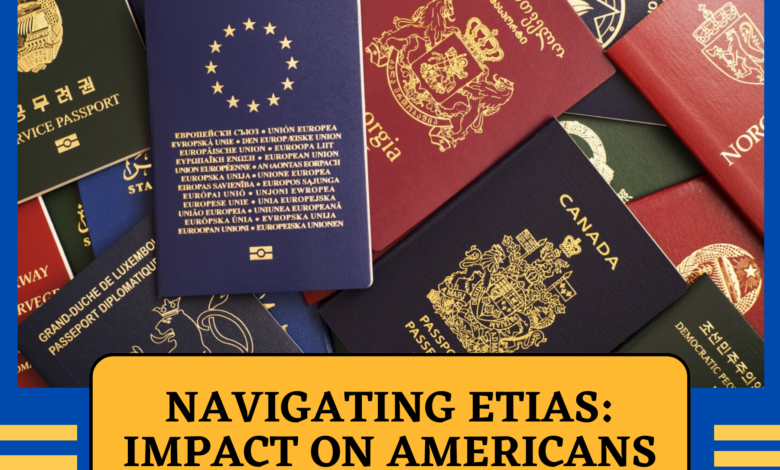Navigating ETIAS: Impact on Americans Visiting Germany

Navigating ETIAS: Impact on Americans Visiting Germany
For Americans planning to explore the enchanting landscapes and rich history of Germany, understanding the visa requirements and entry regulations is paramount. A recent development by the European Union (EU) has sparked curiosity and raised questions among American travelers. In this article, we delve into the details and will be Navigating ETIAS and its impact on Americans visiting Germany.
1. The ETIAS Initiative
The EU’s plan to introduce the European Travel Information and Authorization System (ETIAS) aims to streamline and enhance border control for travelers from non-EU countries, including the United States. The primary objective is to bolster security and facilitate seamless travel while still allowing tourists to cherish Europe’s cultural and historical wonders.
2. ETIAS Registration and Fee
Under the ETIAS program, Americans and other non-EU citizens will be required to register online before their trip to Germany. The process is simple and involves filling out an electronic application, paying a fee of 7 euros, and obtaining travel authorization. Once granted, the authorization will be valid for three years, allowing multiple visits to Germany and other Schengen countries during that period.
3. The 90-Day Rule for American Travelers
Despite the introduction of ETIAS, American travelers will continue to enjoy the 90-day rule, which allows them to spend up to 90 days within a 180-day period in the EU without a visa. This provision offers considerable flexibility for tourists, enabling them to immerse themselves in the diverse cultures and landscapes of Europe.
4. ETIAS vs. Traditional Visas
It is essential to understand that ETIAS is not a traditional visa but rather a visa waiver program, similar to the one that the United States has had for years. The ETIAS authorization does not grant work permits, study permits, or long-term residency. Instead, it is specifically designed for short-term tourism, business, and family visits.
5. The Controversy and American Perception
The introduction of the ETIAS system has sparked debates and discussions about its fairness and impact on American travelers. Some argue that the 7-euro fee for a three-year authorization is a minimal cost compared to the traditional visa application process. However, others express concerns about additional bureaucracy and the necessity of pre-registration before travel.
As the European Travel Information and Authorization System (ETIAS) takes shape, Americans planning to visit Germany must be aware of the new entry requirements. ETIAS offers an efficient and secure way to facilitate tourism while maintaining stringent border control measures. The 90-day rule remains a significant benefit for American travelers, allowing them to relish their European experiences without the need for a traditional visa. While some may perceive ETIAS as an added step in travel preparation, its simplicity and cost-effectiveness make it a welcome evolution in European travel regulations. Stay informed, comply with ETIAS, and explore Germany’s wonders, embracing Europe’s diverse cultures without a traditional visa.
Read more at How To Abroad:
Everything you need to know to Apply for German Citizenship
German citizenship for Foreigners
Want to study in Germany? How To Abroad can help you achieve your academic dreams.

